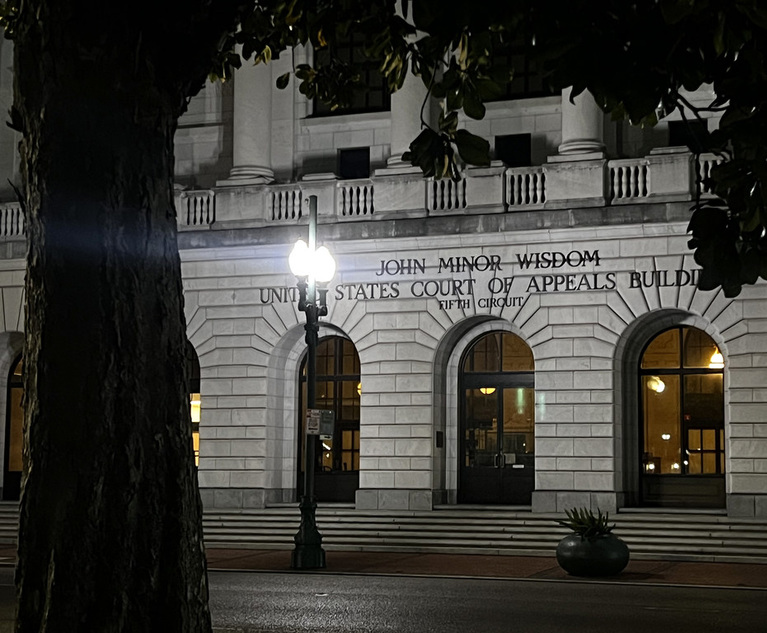The coronavirus pandemic has upended workplaces across industries, flooding labor and employment lawyers with questions about how managers and employees can navigate the crisis.
The U.S. Equal Employment Opportunity Commission recently collected and responded to hundreds of questions about obligations and accommodations under federal workplace laws. The agency posted a webinar Friday responding to inquiries about privacy and disclosure, national origin discrimination, pregnant employees and other matters.
EEOC enforcers noted the reported rise in reports of bias and harassment involving Asian American workers and other people of Asian descent. “The EEOC urges employers and employees to be mindful of instances of harassment, intimidation, or discrimination in the workplace and to take action to prevent or correct this behavior,” EEOC Chair Janet Dhillon said in a statement last week.
The webinar addressed what the EEOC said were the most common questions the agency received. Three EEOC lawyers—Carol Miaskoff, associate legal counsel; Sharon Rennert, senior attorney adviser; and Jeanne Goldberg, acting assistant legal counsel—offered the agency’s guidance on nearly two dozen questions addressing the Americans with Disabilities Act, Title VII and the Age Discrimination in Employment Act. The discussion didn’t touch on other federal laws the EEOC doesn’t enforce, including the Fair Labors Standards Act and the Family Medical Leave Act.
Watch the full 45-minute webinar above, or click on the link here. What follows are some of the questions, and answers, edited for length:
Can employers ask employees coming into the workspace whether they have the disease, or symptoms associated with the illness?
“Employers may ask all employees who will be physically entering the workplace if they have COVID-19, or symptoms associated with COVID-19, or ask if they have been tested for COVID-19,” Sharon Rennert said. Employers, she continued, may exclude those with COVID-19, or symptoms associated with COVID-19, from the workplace. “As EEOC has stated, their presence would pose a direct threat to health or safety,” she said. “For those employees who are teleworking, however, they are not physically Interacting with co-workers, and therefore the employer would generally not be permitted to ask these questions.”
An employer, Rennert said, can bar a worker from physical presence if they refuse to answer questions about whether they have COVID-19, symptoms and whether they have been tested.
“If an employer notices that an employee has a persistent hacking cough, it could ask about the cough, whether the employee has been to a doctor and whether the employee knows if she has or might have COVID-19,” Rennert said. “The reason these types of questions are permissible now is because this type of cough is one of the symptoms associated with COVID-19.”
A manager learns an employee has tested positive for COVID-19 or is showing symptoms. Does disclosing information about the employee violate confidentiality provisions of the ADA?
“The fact that this is medical information does not prevent the manager from reporting to appropriate employer officials so that they can take actions consistent with guidance from the CDC and other public health authorities. The question is really what information to report? Is it the fact that an employee unnamed, has symptoms of COVID-19 or a diagnosis? Or is it the identity of that employee?” Jeanne Goldberg, acting assistant legal counsel, said.
Goldberg continued: “The answer is that exactly who in the organization needs to know the identity of the employee will really depend on each workplace and why a specific official needs this information? Employers should make every effort to limit the number of people who get to know the name of the employee, certainly a designated representative of the employer may interview the employee to get a list of people with whom the employee possibly had contact through the workplace, so that the employer can then take action to notify those who may have come into contact with the employee. However, this does not require disclosing the employee’s name. For small employers, of course, co-workers might be able to figure out who the employee is, but employers are still in that situation prohibited from confirming or revealing the employee’s identity. Also, remember that all employer officials who are designated as needing to know the identity of an employee should be specifically instructed that they must maintain the confidentiality of this information.”
Is COVID-19 recognized as a disability under the Americans with Disabilities Act?
“Here is what the EEOC can say now. This is a very new virus, and, while medical experts are learning more about it, there is still much that is unknown,” Sharon Rennert said. “Therefore, it is unclear at this time whether COVID-19 is or could be a disability under the ADA. Regardless of whether COVID-19 is or could be a disability, remember that an employer may bar an employee with the disease from entering the workplace at this time because of direct threat. Employers should continue to take actions involving persons with COVID-19 or who may have COVID-19 based on the most current guidance available from the CDC, and other public health authorities.”
Read more:
How to Effectively Manage Workforce Contraction in Turbulent Times
‘It’s Going to Be Extraordinary’: Predictions From Neil Barofsky for Coronavirus Recovery Oversight
‘All Hands on Deck’ for Labor and Employment Firms Facing Flood of Employer Questions
We Navigated Crises. Here’s How to Prepare Your Business in the Coronavirus Era
New Normal Sets In for White-Collar Lawyers in the Virus Era
NOT FOR REPRINT
© 2024 ALM Global, LLC, All Rights Reserved. Request academic re-use from www.copyright.com. All other uses, submit a request to [email protected]. For more information visit Asset & Logo Licensing.









